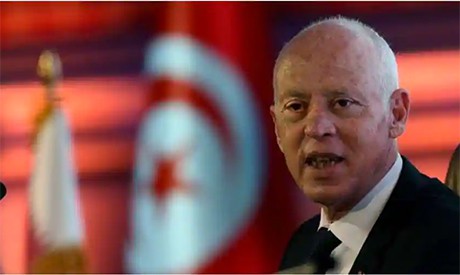TUNIS: Tunisian President Kais Saied has extended the suspension of parliament until further notice, the presidency said in a statement, a month after freezing it in a move that opponents decried as a coup.
He also extended an order lifting immunity for the country’s lawmakers.
Saied issued “a presidential decree extending the exceptional measures… regarding the suspension of Parliament and lifting of the parliamentary immunity of its MPs until further notice”, said the statement issued late Monday.
He would deliver an address to the Tunisian people in the coming days, it added, without providing further details.
Tunisia, hailed as a rare democratic success story in the Middle East and North Africa, is mired in a political crisis compounded by dire economic woes and the Covid-19 pandemic.
Saied’s shock intervention on July 25, in which he sacked the government and said he was suspending parliament for a month, sparked uncertainty for the North African country.
He said the measures were necessary to prevent the country from collapse.
He also cited powers he says were granted by the constitution, but he has yet to reveal a “roadmap” for his decisions despite repeated demands by political parties.
The intervention was condemned by judges and Saied’s opponents, in particular the Islamist-inspired Ennahdha party, the largest bloc in parliament.
Several politicians, businessmen and judges, as well as members of parliament — who lost their immunity after Saied suspended the legislature — have said they were banned from travelling abroad or put under house arrest without warning.
Their claims have sparked a chorus of condemnation, with critics denouncing “arbitrary” and “unjustified” measures.








